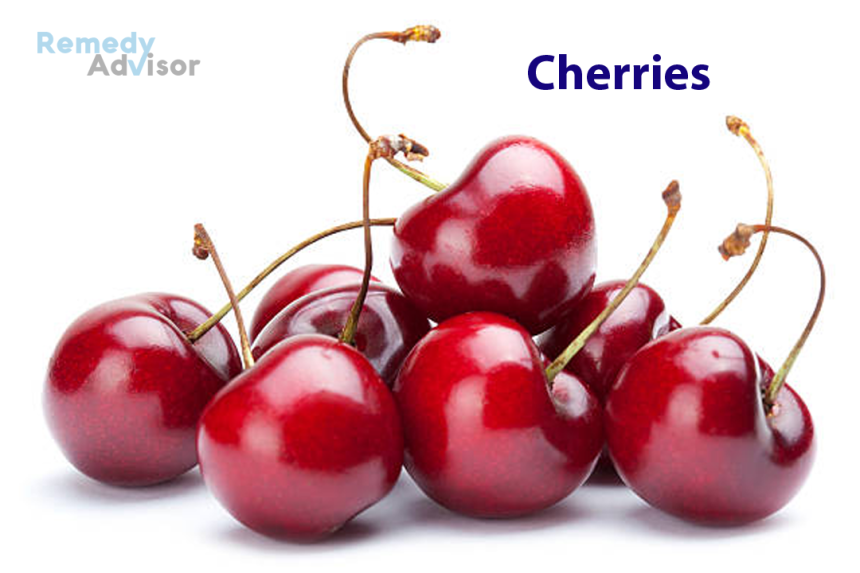From the time little kids learn their very first history lessons regarding the founding of the United States, they hear about cherries. Wasn’t George Washington recognized for trimming down his father’s cherry tree? The story is told so often because this young kid, who grew up to become the first president of the United States, did not try to shy away from the truth. He told his father just what he had done.
Though the story of George Washington and the cherry tree may or may not be true, today cherries are also supposed to be an extremely healthy fruit. Some think that they must be considered a type of “super food.” They have been said to be beneficial for pain, cancer prevention, inflammation and sleep regulation; they also may have anti-aging properties. But, does the research support these claims?
Reduction in inflammation and pain
In a study, researchers verified usage of anthocyanins (antioxidant flavonoids) removed from tart cherries on inflammation persuaded discomfort in rats. They also studied how the effects of anthocyanins compared to benefits got from using the non-steroidal anti-inflammatory drug indomethacin and how the consumption of anthocyanins affected motor coordination. Scientists found that the uppermost dose of anthocyanins (400 mg/kg) obtained results comparable indomethacin (5 mg/kg). And, even at maximum dose, anthocyanins did not change motor management. Scientist decided that, “tart cherry anthocyanins might have a appreciated part in the treatment of inflammatory pain.”
Cardiovascular health, metabolic syndrome, and type 2 diabetes

During the 2007 Experimental Biology Annual Meeting, researchers noted that the consumption of cherries might decrease the threat of cardiovascular disease, type 2 diabetes and metabolic syndrome. In an investigation, a set of rats was fed with a diet that consists of 1% tart cherry powder; and other set of rats was fed a diet that was 10 percent tart cherry powder. Group of rats was nourished a diet lacking cherry powder, but with same quantity of calorie and carbohydrates. After 90 days, the rats fed cherry powder had lesser levels of total cholesterol, insulin, triglycerides and fasting glucose levels. “All of these measures are factors that are connected to metabolic syndrome.” “Metabolic syndrome is a bunch of characters that can significantly upsurge your possibility of heart disease, type 2 diabetes and stroke. Lifestyle alterations have been revealed to lower the odds of increasing metabolic syndrome, and there is marvelous interest in studying the effect of specific foods that are rich in antioxidants like cherries.”
Sleep regulation and anti-aging
Researchers are learning more about how the body benefits from an increased consumption of melatonin, a powerful antioxidant that is made in the body’s pineal gland. However the body naturally creates melatonin, it may not create all that it needs. Additionally, as the body ages, it creates less. Melatonin is recognized to play an essential role in assisting to regulate biorhythm and sleep forms. Tart cherries are among the very few identified food sources of melatonin. And, melatonin researchers believe that tart cherries may be beneficial for those with sleep problems and those dealing with jet lag. Dr. Reiter recommends plane voyagers to eat dried cherries one hour just before going to sleep. “After arrival, consume cherries one hour before sleep every night for at least three continual evenings.”
In a study researchers explored what would happen if they administered melatonin for seven days to a diurnal animal (one that is active during the day and sleeps at night). They chose ringdoves, pigeons with whitish patches on each side of the neck and wings edged with white. Scientists calculated both young ringdoves, between the ages of two and three years, and old ringdoves, between the ages of ten and twelve years. Three altered melatonin doses were used: 0.25, 2.5, and 5 mg/kg body weight. “The results displayed that the management of either melatonin dose reduced both diurftal and nocturnal old ringdove actions, the reduction being greater at night. Young creatures also decreased their nocturnal action with all three melatonin concentrations, however their diurnal action only decreased with the 2.5- and 5-mg/kg body weight cures.” Scientists concluded that, “treatment with melatonin may be suitable to recover nocturnal rest, and helpful as a cure for sleep disorders.
And, a study on mice determined that melatonin helps to neutralize the oxidation and inflammation related with aging. The researchers even suggested that around age 30 or 40, people begin a daily consumption of melatonin.
Should cherries be part of the diet? Definitely.







